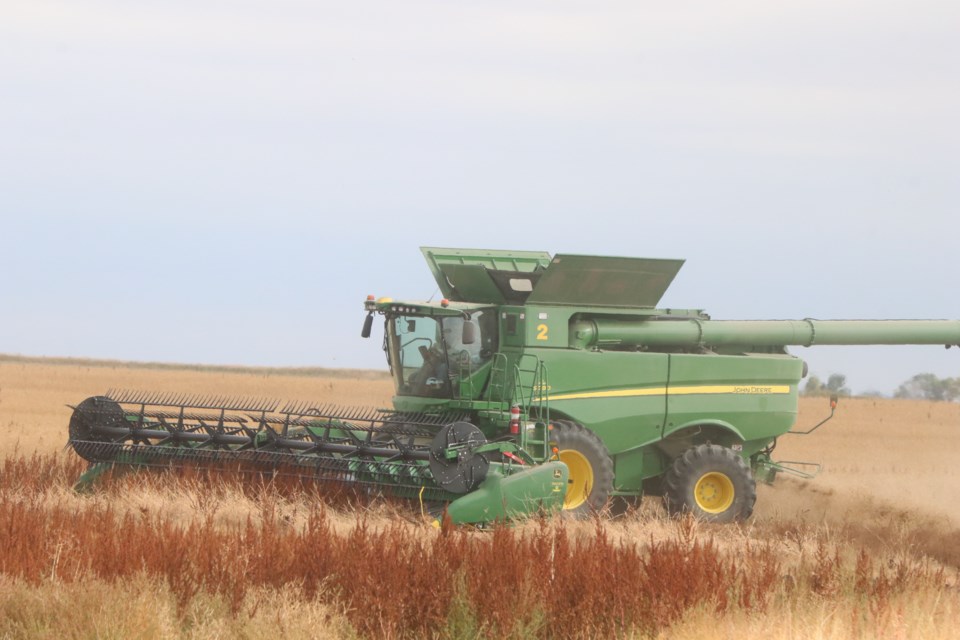YORKTON — Harvest continues to progress within the region despite scattered rainfall in some areas, causing harvest delays. Currently, harvest is 38 per cent complete which is ahead of the five and ten-year average of 22 per cent.
As producers continue with harvest, they are also busy swathing, desiccating, baling straw, hauling bales and will be monitoring bins in the coming weeks. The risk of fire is a concern within the region.
Within the region, winter cereals harvest is mainly complete. Harvest progress for lentils is 85 per cent complete and field peas are 83 per cent complete. Durum is estimated to be 39 per cent complete followed by barley at 37 per cent complete and spring wheat at 24 per cent harvested within the region. Oats are reported at 12 per cent harvested. Mustard is the furthest advanced at 88 per cent harvested for oilseed crops, followed by canola at nine per cent. No flax is reported to be harvested within the region. Harvest percentages reported include per cent of crop harvested as feed.
Producers estimate varying yields throughout the region given the differences in moisture received throughout the growing season. Currently, hard red spring wheat is estimated to be 48 bushels per acre, durum is 38 bushels per acre, oats is 67 bushels per acre, barley is 63 bushels per acre, canola is estimated at 34 bushels per acre, fields peas are 38 bushels per acre and lentils are estimated at 1,961 pounds per acre. Producers will continue to monitor crop quality as harvest progresses within the region. There is concern given the increased temperatures experienced during the critical period of flowering for many crops.
Scattered rain fell throughout the region with some areas receiving no rainfall. The highest rainfall recorded fell in the Wadena area at 38 mm. The Wroxton area received 10 mm and the Hanley area received 7 mm over the past week.
Producers continue to monitor topsoil moisture within the region and hope for moisture following harvest to replenish soil moisture and assist with pasture growth moving into the fall. Currently, cropland topsoil moisture is rated as 65 per cent adequate, 22 per cent short and 13 per cent very short. Hayland is rated as 51 per cent adequate, 23 per cent short and 26 per cent very short. Pasture topsoil moisture is rated as 47 per cent adequate, 24 per cent short and 29 per cent very short.
Wind was the main cause of crop damage over the past week which has led to crop lodging. Grasshoppers continue to cause minor damage in some areas within the region.
For more information about East-Central Saskatchewan, explore the Crop Report Dashboard.




